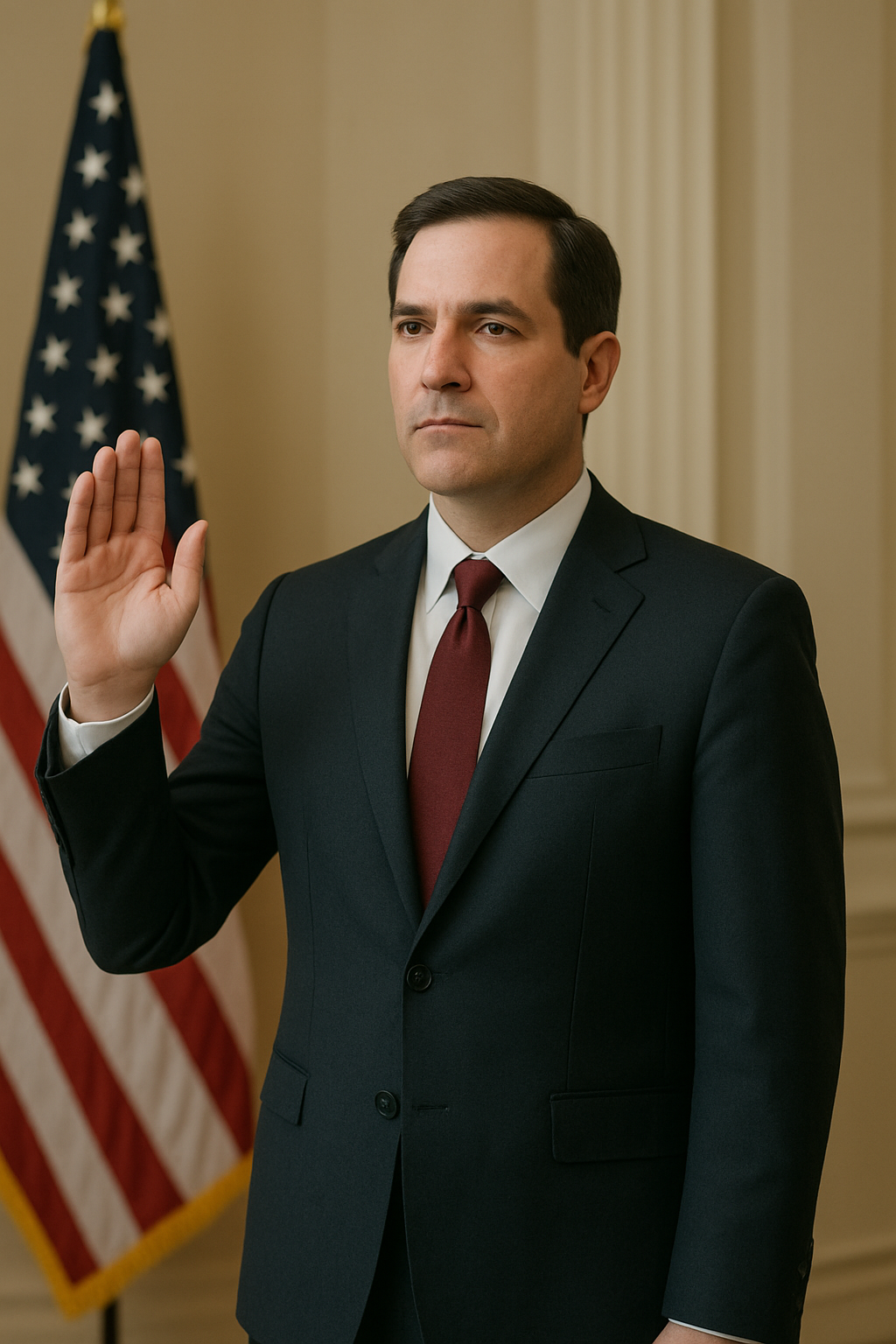During President Trump’s first term, subordinates pushed back against ethically questionable requests and acts that would have likely been illegal. I’m not referring to those who disagreed with lawful administration policy, but rather those who took principled stands when norms, core values, and the rule of law were under assault.
Moral Courage in Trump’s First Term
Those principled stands required moral courage. FBI Director James Comey (now under indictment by Trump’s Justice Department) rebuffed Trump’s requests for unprincipled loyalty. Attorney General Jeff Sessions held firm under immense pressure to unrecuse himself from the Russia election interference investigation. White House Counsel Don McGahn refused to lie about the president’s efforts to fire Special Counsel Mueller. CISA Director Christopher Krebs countered Trump’s disinformation regarding election fraud.
Attorney General William Barr likewise publicly stated that there was no evidence of widespread and outcome-determinative election fraud. Justice Department leaders Jeffrey Rosen and Richard Donoghue refused to corrupt their organization when the president tried to use it to overturn the 2020 election. Rosen and Donoghue instead threatened to resign and convinced the president that what was in the nation’s best interest was also in his best interest.
Some of the previous challenges requiring moral courage remain. The president’s decision-making is guided largely by self-interest. He has asserted that when somebody is the president of the United States, the authority is total. Attacks on truth, science, and free speech continue. Congressional Republicans have largely capitulated, seemingly trading their role as a separate branch of government for the “privilege” of becoming the president’s pseudo-subordinates. These same Republicans once again lack an appetite for accountability.
New Challenges to Moral Courage
President Trump and members of his administration are again failing to respect institutional norms, independent oversight, and other democratic traditions. They are blatantly violating laws that exist to provide oversight through our government’s separation of powers. We are also witnessing more abuses of power and threats to the rule of law.
The new challenges also include a president emboldened by the Supreme Court’s immunity decision, and his apparent belief that a recent lack of real accountability coupled with what he sees as a “landslide” victory equate to vindication and a national mandate. The president’s restructuring of the Civil Service (Schedule F), making it easier to fire those he views as disloyal, will continue to challenge expressions of principled loyalty. Trump is also abusing his powers by engaging in retribution against his perceived enemies by means of firings, the revocation of security clearances, and by demanding prosecutions. Whistleblowers at FEMA and the EPA were suspended. The administration fired FBI agents and Justice Department attorneys for investigating Russian election interference and for prosecuting those who on January 6, 2021, used violence to prevent the certification of the 2020 presidential election.
Hundreds of thousands of federal workers have lost their collective bargaining rights pursuant to an executive order. Agencies and commissions mandated by Congress are being shuttered. President Trump has continued his practice of removing individuals (at least seventeen inspectors general and the heads of independent watchdog groups) charged with seeking accountability and rooting out fraud, waste, abuses of power, and violations of the law. Meanwhile, the Justice Department is intentionally weakening its ability to investigate public corruption.
The Trump transition team’s emphasis on hiring senior officials who share Trump’s views on the outcome of the 2020 election and his characterization of the events of January 6, 2021, has subordinated competence and necessary dissent to some form of unprincipled loyalty. The president’s senior leaders have largely chosen personal fealty over loyalty to the Constitution and organizational imperatives. All of these troubling developments demand more and greater expressions of moral courage from mid-level federal employees.
The Courage Needed from Mid-level Public Servants
During Trump’s first term, mid-level employees blew the whistle and testified when ostensibly legitimate authority (the conduct of foreign policy) was being used for corrupt purposes in the Ukraine debacle. A whistleblower came forward when intelligence reporting was stymied simply because it contradicted the president’s public statements. Public health officials refuted the president’s false claims about the COVID-19 pandemic. More recently, a former Justice Department attorney blew the whistle when department superiors allegedly pressured subordinate attorneys to ignore their ethical obligations in furtherance of the president’s agenda.
These mid-level managers and leaders, whether appointed or leaders simply by virtue of the example they set, must fill the aforementioned character vacuum. They must have the discipline and self-control to avoid getting sucked into the orbit of unscrupulous peers and superiors. Potentially subduing the necessary moral courage may be the allure of power, the need to conform or be an “insider,” and the emotional gratification derived from displays of “loyalty” to a superior. There will also be more threats of reprisal and termination. Finally, these public servants may be operating in organizations lacking traditional inspector general protections.
Nonetheless, they must speak truth to power and fight misinformation and disinformation in real-time, as Senator John McCain did during his 2008 presidential campaign when confronted with lies about his political opponent. They will need to fight for accountability and the integrity of their organizations when their superiors have no such appetite. They should understand that there is nothing disloyal about reporting gross misconduct. Those who engage in serious misconduct are disloyal to their organizations’ values and the common good. Those charged with administering the rule of law—criminal investigators, prosecutors, judges and juries—will also require moral courage.
These public servants must also confront discrimination, refuse to carry out unlawful orders, resist undue influence and intimidation, and shield others from their effects. They must choose principled loyalty over loyalty to any one person or group of people.
In short, they must do their jobs, in deference to their oaths and their responsibility to the American people. Selfless leadership requires courage, perseverance, and potentially personal sacrifice. Now more than ever, we are counting on our executive branch public servants to exemplify a level of moral courage necessary to safeguard our democratic institutions. Make us proud.


0 Comments